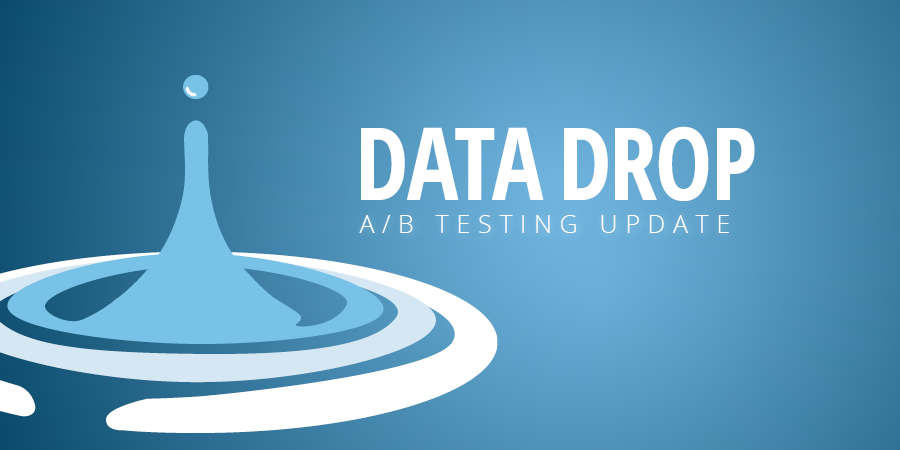
💧 It’s Science: Car Shoppers Want a Vehicle Specials Page
We have an automotive dealership client that does a consistently great job of updating a “vehicle specials” page with its monthly vehicle offers.
As the dealership’s digital marketing agency, we link to this specials page in our online ads, emails, and website content. The page is pretty handy, and it provides a better user experience than a mishmash search results page (SRP) that shoppers have to comb through.
But, a few months back, I posed the question: would linking to the SRP page instead of the specials page result in more SRP views? This was a compelling question, because:
- SRP views are one of the key performance indicators (KPIs) on which 9 Clouds reports.
- More SRP and vehicle description page (VDP) views result in more shoppers being qualified to see the dealership’s dynamic retargeting ads on Facebook (definitely a thing we’re going for!).
So, we presented this idea to the client, and we decided to put the vehicle specials page to the test in a couple of emails.
Spoiler alert: the vehicle specials page won out.
In this edition of the 9 Clouds Data Drop, we’ll dig into this A/B test and some Facebook advertising tests our team has executed recently!

Email Test: Vehicle Specials Page Link vs. SRP Link
Testing Variable
💧 Variation A: The email call-to-action (CTA) links to a vehicle specials page
💧 Variation B: The email CTA links to a search results page (SRP)
Hypothesis
We hypothesized that Variation B would result in more SRP views but possibly a decreased time on site (presumably due to an inferior user experience).
Results
- In two email tests, Variation A resulted in more SRP page views with statistical significance of 97% and 100%.
- In addition, the average time on site from Variation A was 1.5 minutes and 30 seconds longer than Variation B.
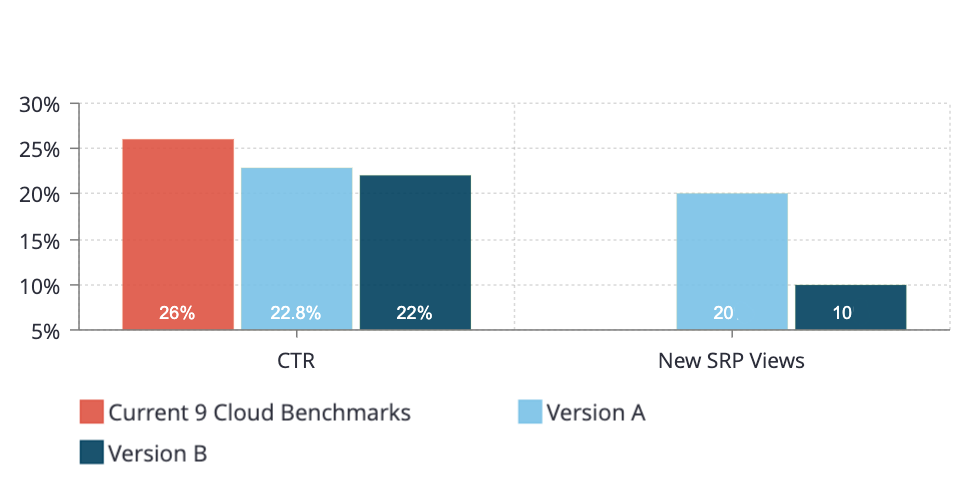
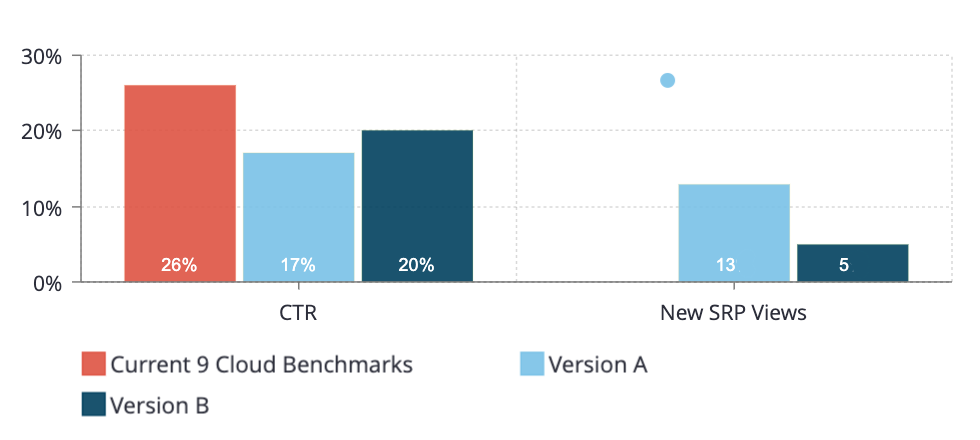
Conclusion
I’m happy to say my hypothesis that linking directly to the SRP page would result in more SRP views was wrong! Linking to the specials page actually resulted in a statistically significant increase in SRP views and, in one of the emails, nearly twice the session duration!
The client was happy to hear about the test outcome, too. 🙂

Facebook Test: Vehicle Price vs. No Price in Dynamic Ads
Testing Variable
💧 Variation A: The dynamic Facebook ad does not include the vehicle price
💧 Variation B: The dynamic Facebook ad includes the vehicle price
Hypothesis
Two 9 Clouds content strategists performed this test for two different clients, each with a different hypothesis.
One hypothesized that Variation A would have more unique outbound link clicks in Facebook, while the other thought Variation B would have more.
Results
After one month of running these dynamic Facebook campaigns, we found:
- In the first test, Variation A had 64% more unique outbound link clicks (100% statistical significance).
- In the second test, Variation A had 53% more unique outbound link clicks (100% statistical significance).
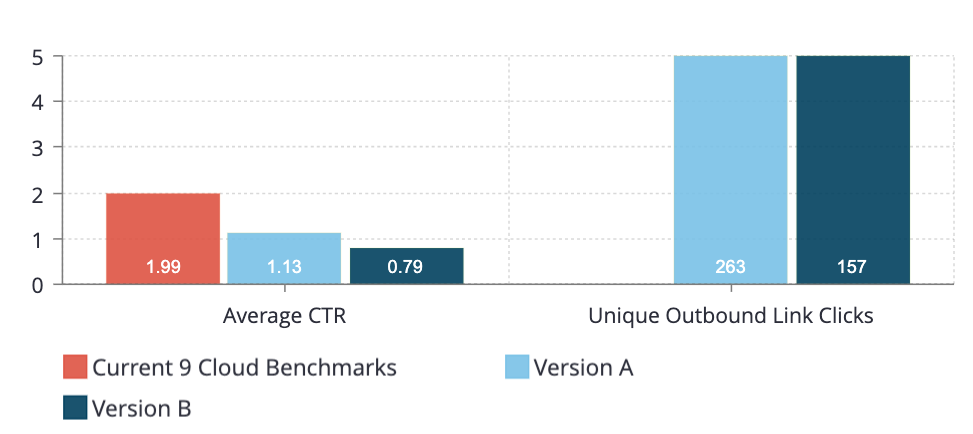
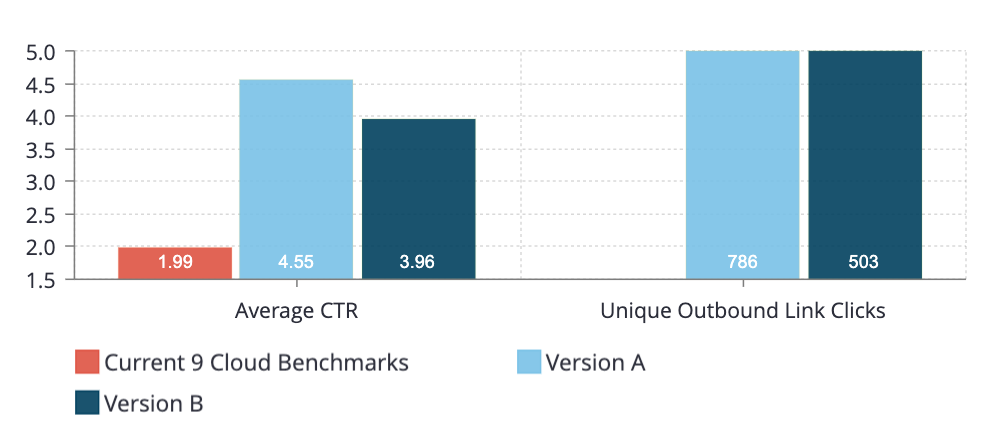
Conclusion
This was a more surprising finding to our team, and we’re looking forward to trying it out on more of our clients’ dynamic Facebook campaigns. Based on the statistical significance of these tests, we expect to see more unique outbound link clicks by not including a vehicle’s price in the ad.

What Have You Been Testing?
Using data to make marketing decisions will continually improve your bottom-line results. Whether you’re a car or RV dealer, running a nonprofit, or selling nail polish and hair products, A/B testing is crucial to your marketing strategy.
Learn more in our on-demand webinar, “Become a Marketing Scientist: How to Improve Your Results with Content Testing” — or, let us do the work for you.
Schedule a digital marketing assessment to find out if we’d be a good fit to work together!
SEE HOW WE HELP OTHER BUSINESSES WIN ONLINE »




